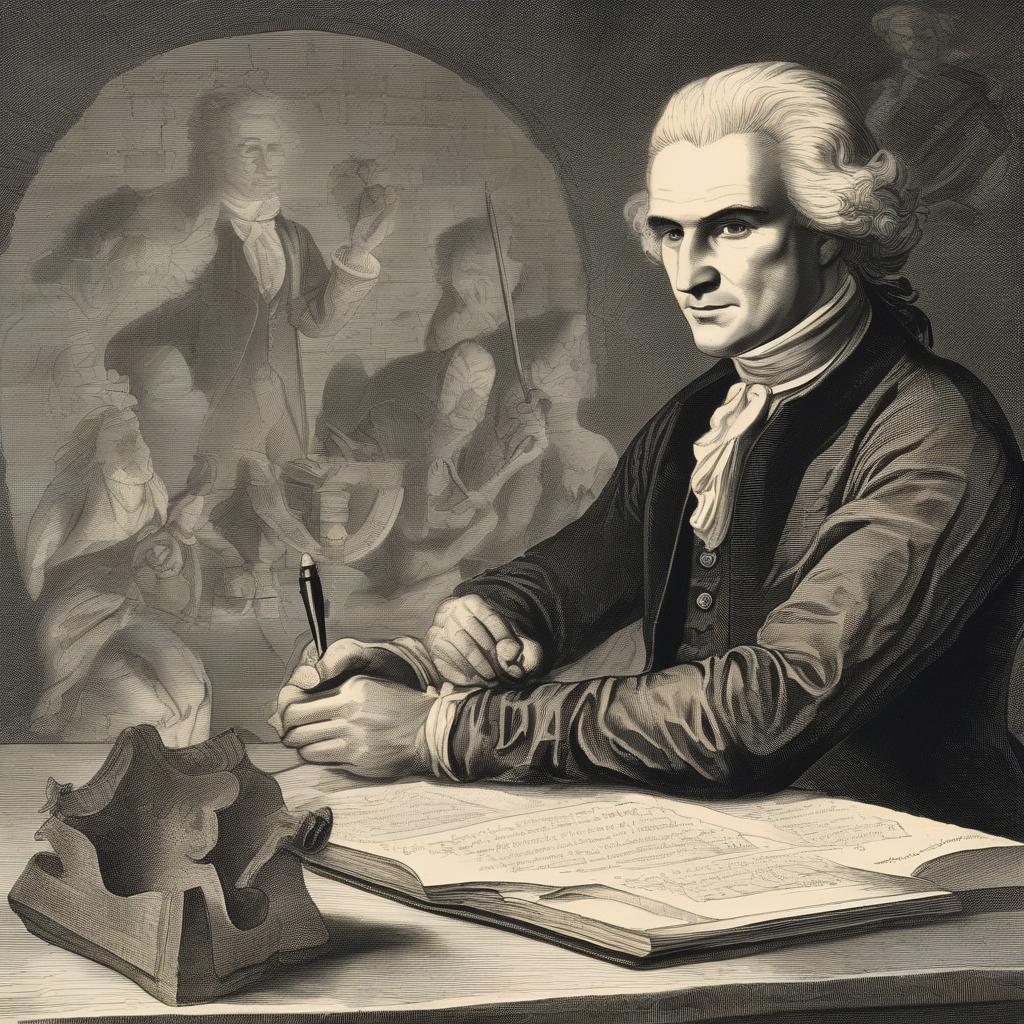
Rousseau?s Social Contract & Its Role in Illuminati Ideals
“`html
Rousseau’s Social Contract & Its Role in Illuminati Ideals
Introduction
Jean-Jacques Rousseau, one of the most influential Enlightenment thinkers, laid the groundwork for modern political philosophy with his seminal work, The Social Contract. His ideas on governance, individual freedom, and collective equality resonated deeply with secret societies of the time—particularly the Illuminati. Founded in 1776, the Illuminati sought to challenge oppressive structures and promote rational thought, drawing heavily from Enlightenment principles. This article explores how Rousseau’s theories on the social contract aligned with the Illuminati’s vision of a just society, shaping their ideological framework.
Rousseau’s Social Contract: Core Principles
Rousseau’s The Social Contract (1762) introduced revolutionary ideas about the relationship between individuals and the state. Key principles include:
- Popular Sovereignty: Rousseau argued that legitimate authority must derive from the collective will of the people, not divine right or hereditary rule.
- General Will: The “general will” represents the common good, transcending individual interests to create a fair society.
- Equality & Freedom: He believed true freedom could only exist in a society where all citizens participated equally in governance.
These ideas directly opposed the absolutist monarchies of Europe, making Rousseau’s philosophy a natural influence for groups like the Illuminati, who sought systemic reform.
The Illuminati’s Adoption of Rousseau’s Ideals
The Bavarian Illuminati, founded by Adam Weishaupt, embraced Enlightenment philosophies to challenge religious and political tyranny. Rousseau’s Social Contract provided a blueprint for their goals:
1. Opposition to Authoritarianism
Like Rousseau, the Illuminati rejected unchecked power, advocating instead for meritocracy and rational governance. Their secretive structure allowed them to critique authority without immediate persecution.
2. Emphasis on Education & Enlightenment
Rousseau’s belief in the power of education to cultivate moral citizens mirrored the Illuminati’s focus on intellectual liberation. Both saw knowledge as a tool to dismantle superstition and oppression.
3. Vision of a Utopian Society
The Illuminati’s idealized world—free from corruption and inequality—echoed Rousseau’s concept of a society governed by the general will. Their shared vision inspired later revolutionary movements, including the French Revolution.
Controversies & Misinterpretations
Despite their philosophical alignment, Rousseau’s ideas and the Illuminati’s actions were often misrepresented:
- Radicalism vs. Reform: While Rousseau advocated peaceful reform, the Illuminati’s secretive tactics fueled conspiracy theories about violent overthrow.
- Elitism Accusations: Critics argued both Rousseau’s “legislator” concept and the Illuminati’s hierarchical structure contradicted egalitarian ideals.
These contradictions highlight the tension between theory and practice in revolutionary thought.
Conclusion: A Lasting Philosophical Legacy
Rousseau’s Social Contract provided intellectual fuel for the Illuminati’s mission to reshape society. Their shared emphasis on reason, equality, and collective governance left an indelible mark on modern political thought. Though the Illuminati disbanded, their ideals—rooted in Enlightenment philosophy—continue to inspire discussions about power, freedom, and justice. For those interested in the Illuminati’s broader philosophies, explore our article on how to become Illuminati or their core Enlightenment influences.
FAQ
Did Rousseau directly influence the Illuminati?
While no direct correspondence exists, Rousseau’s works were widely read among Enlightenment circles, including Illuminati members.
How did the Illuminati differ from Rousseau’s ideals?
The Illuminati operated as a secret society, whereas Rousseau advocated transparency in governance. Their methods diverged, but their end goals aligned.
Were the Illuminati successful in implementing Rousseau’s ideas?
Their immediate impact was limited, but their fusion of Rousseau’s philosophy with activism influenced later democratic movements.
“`
